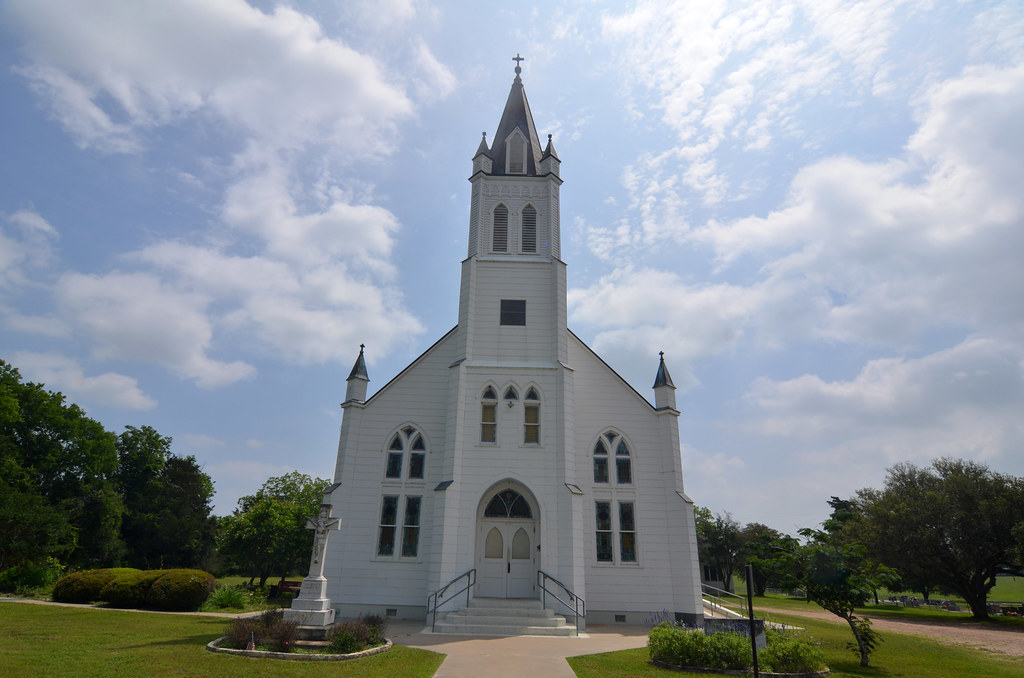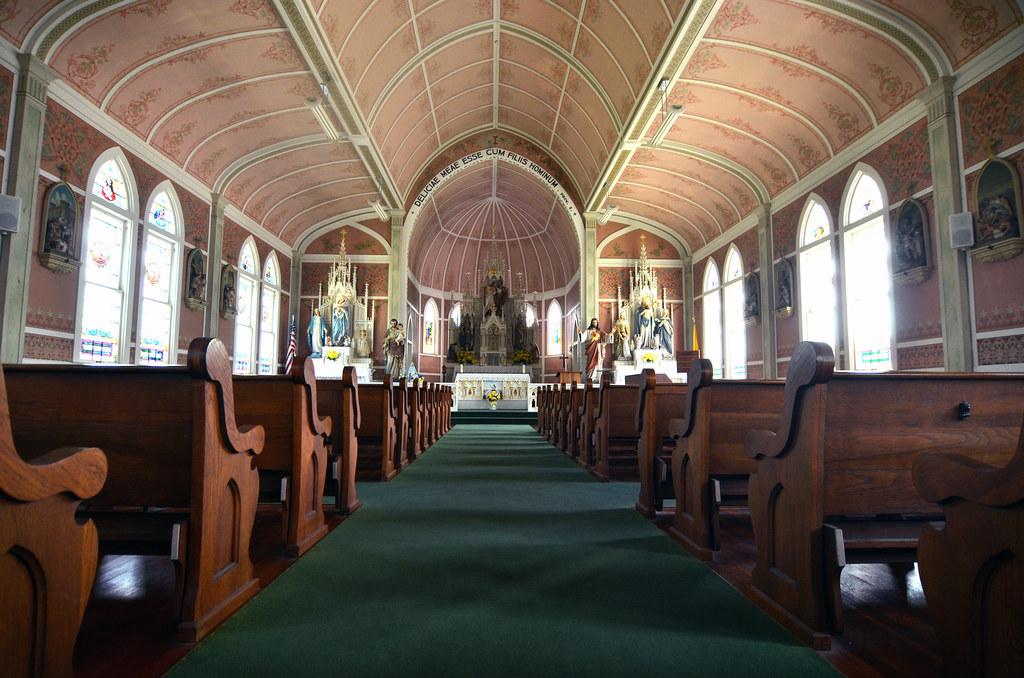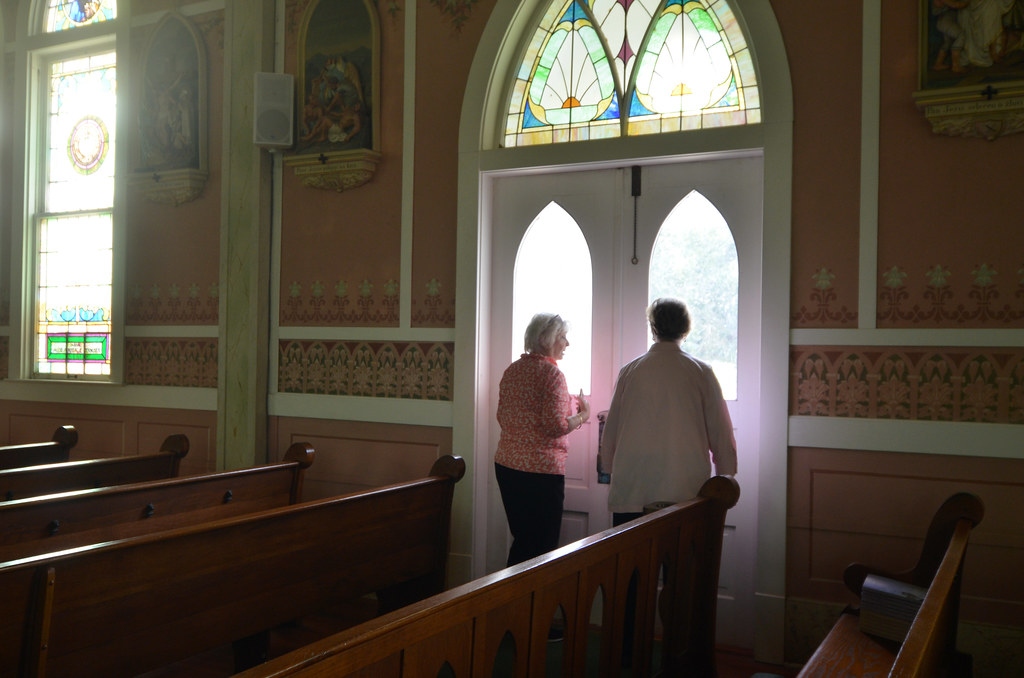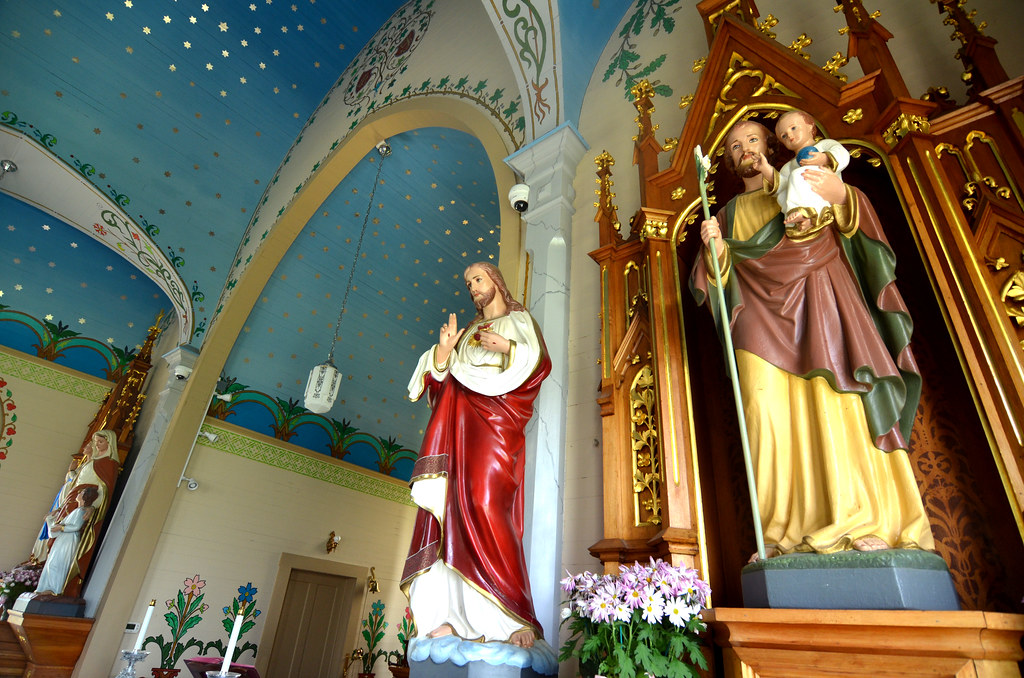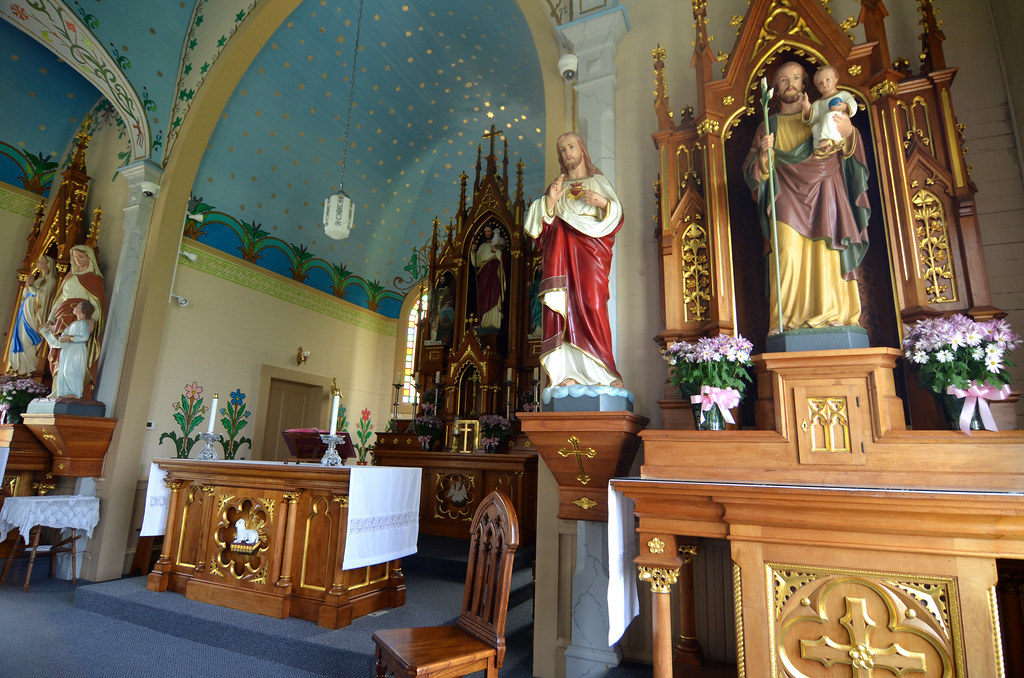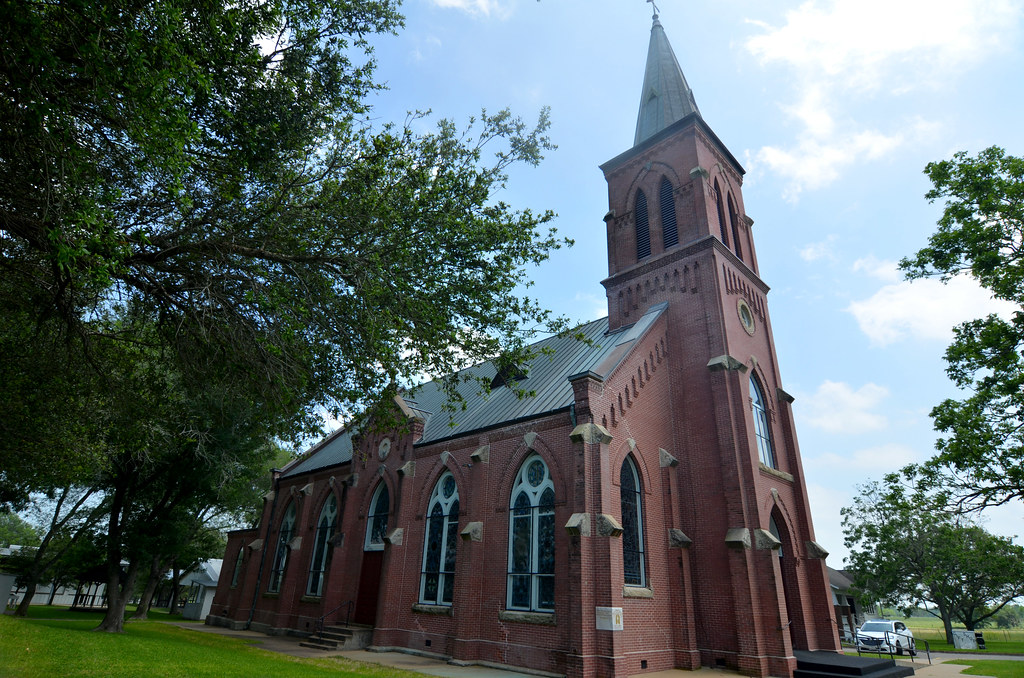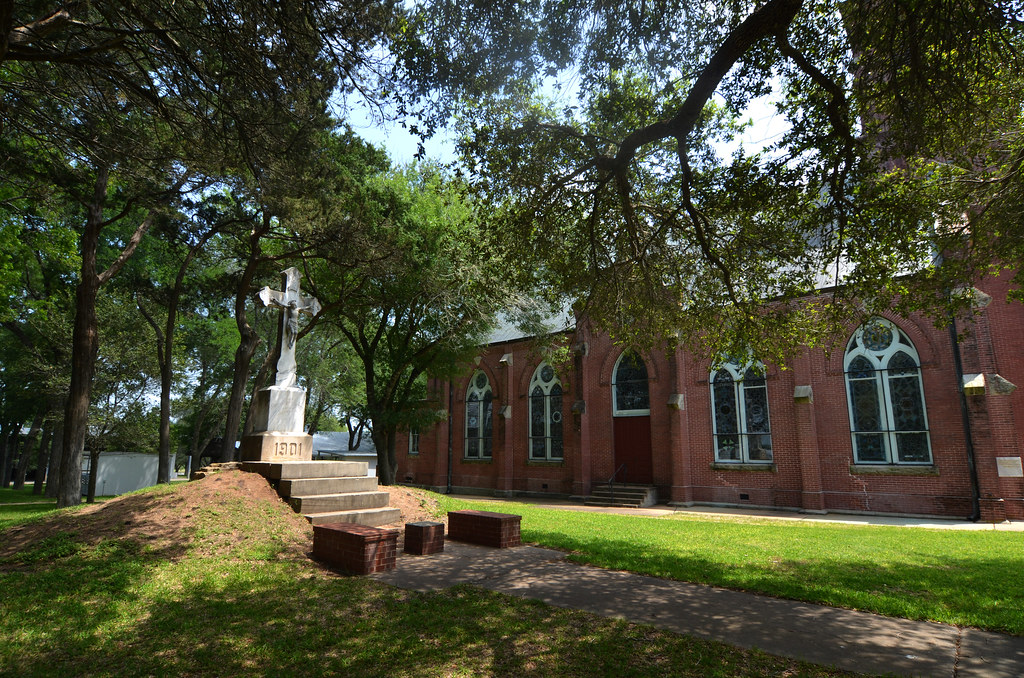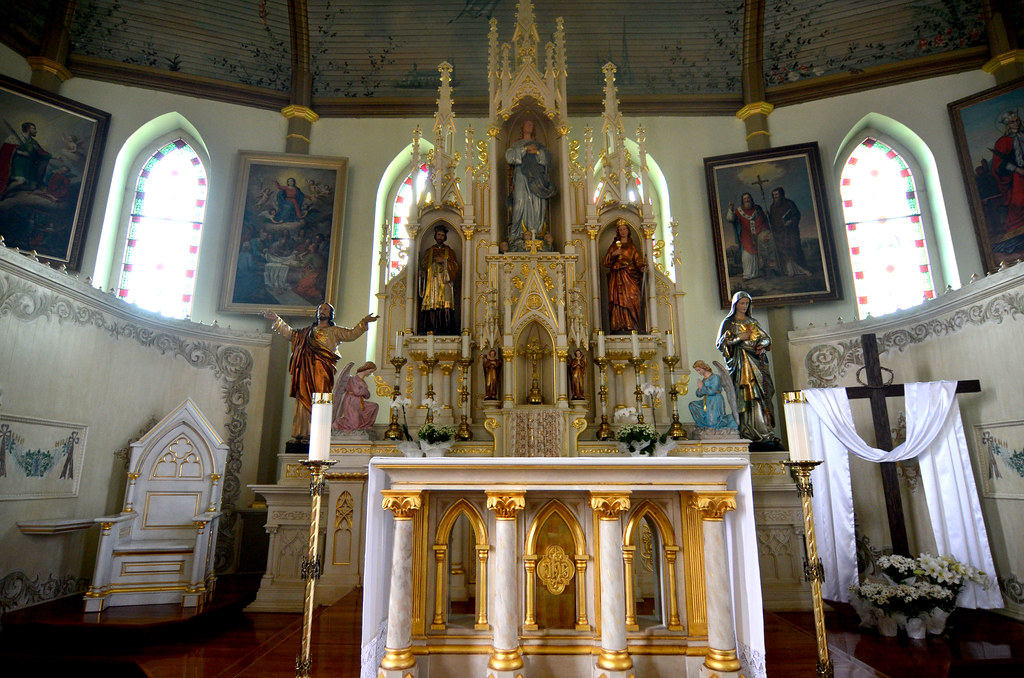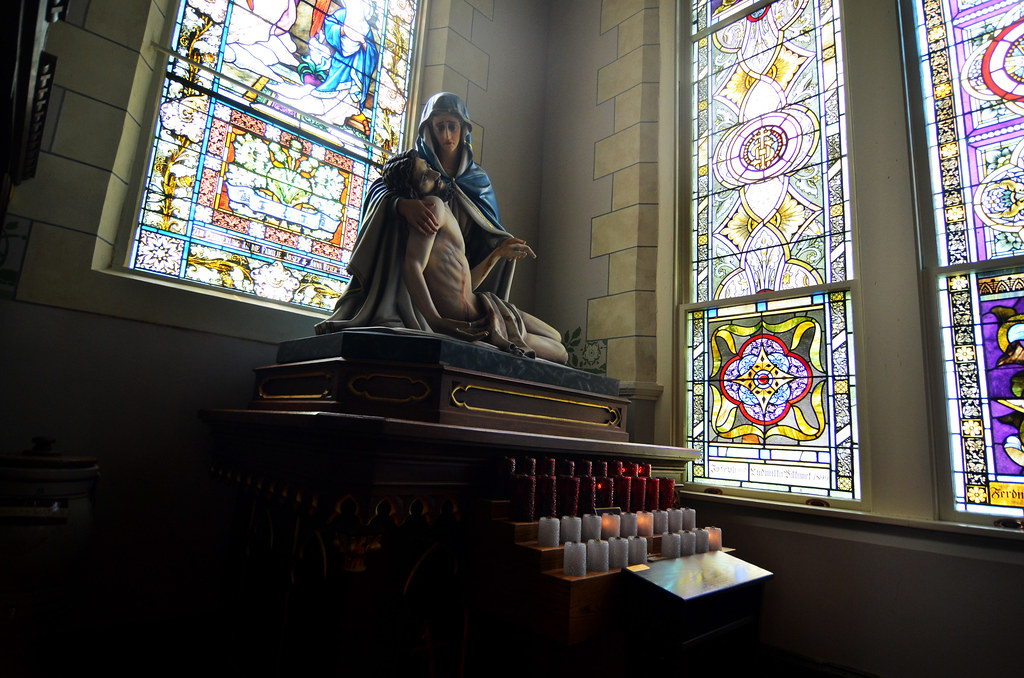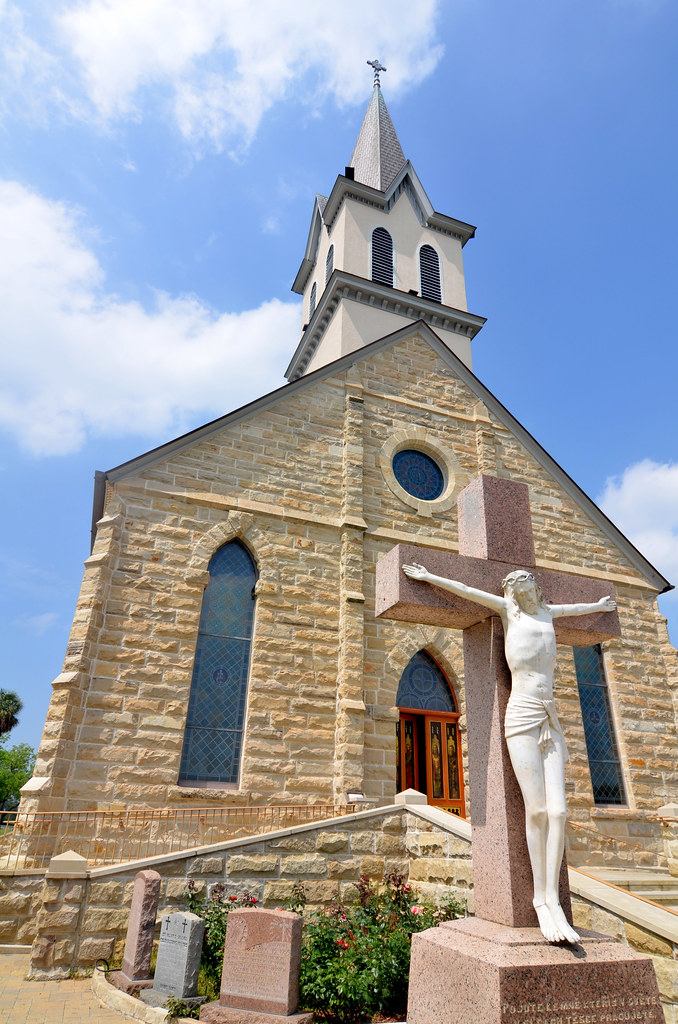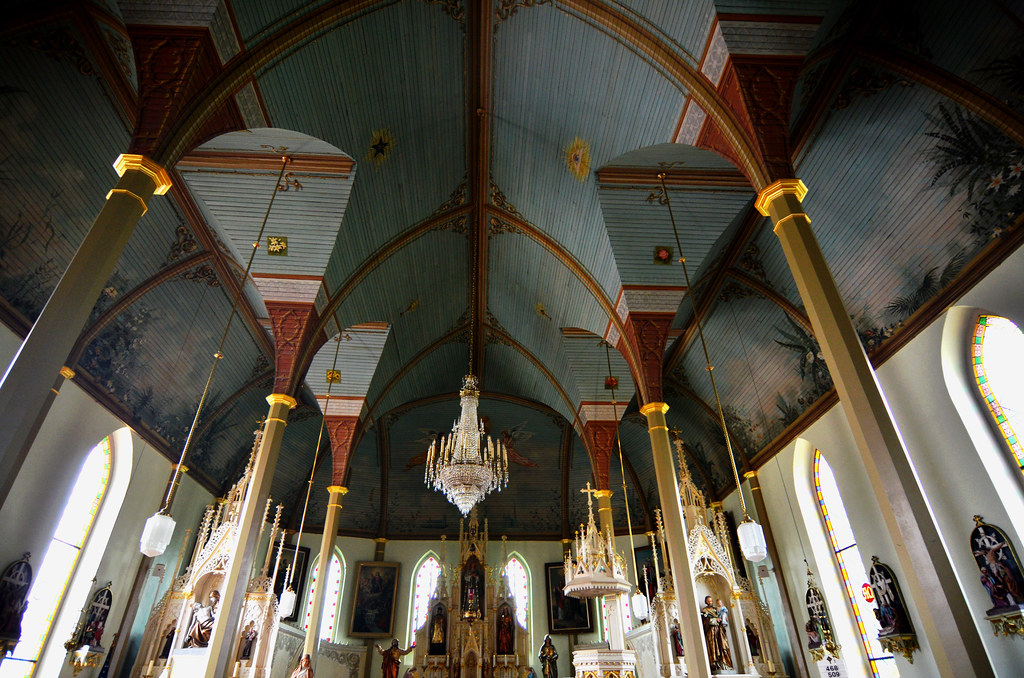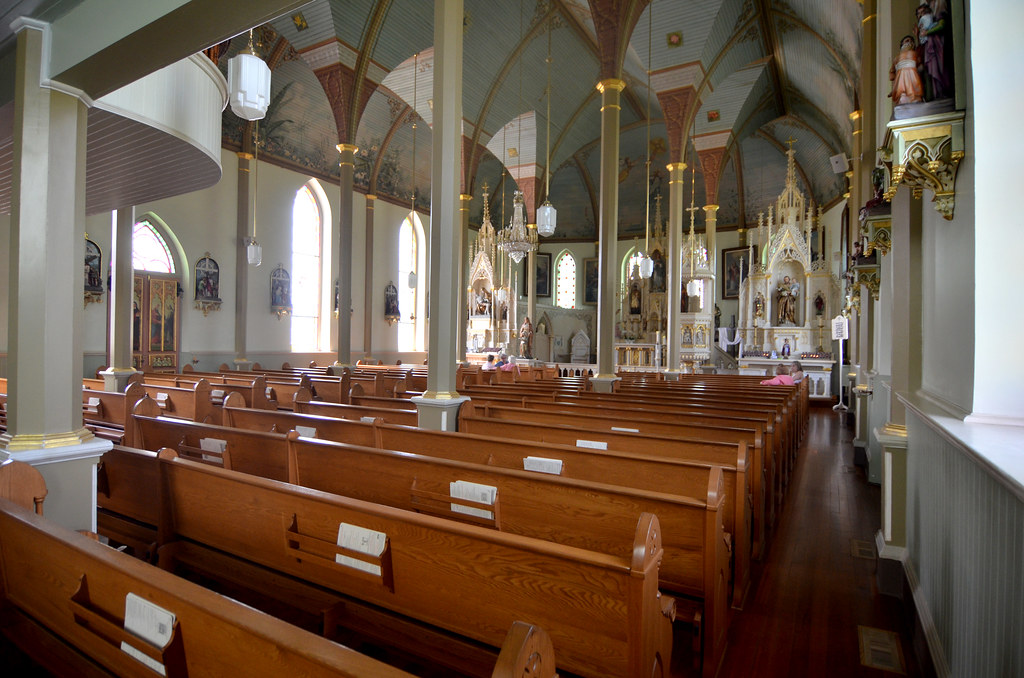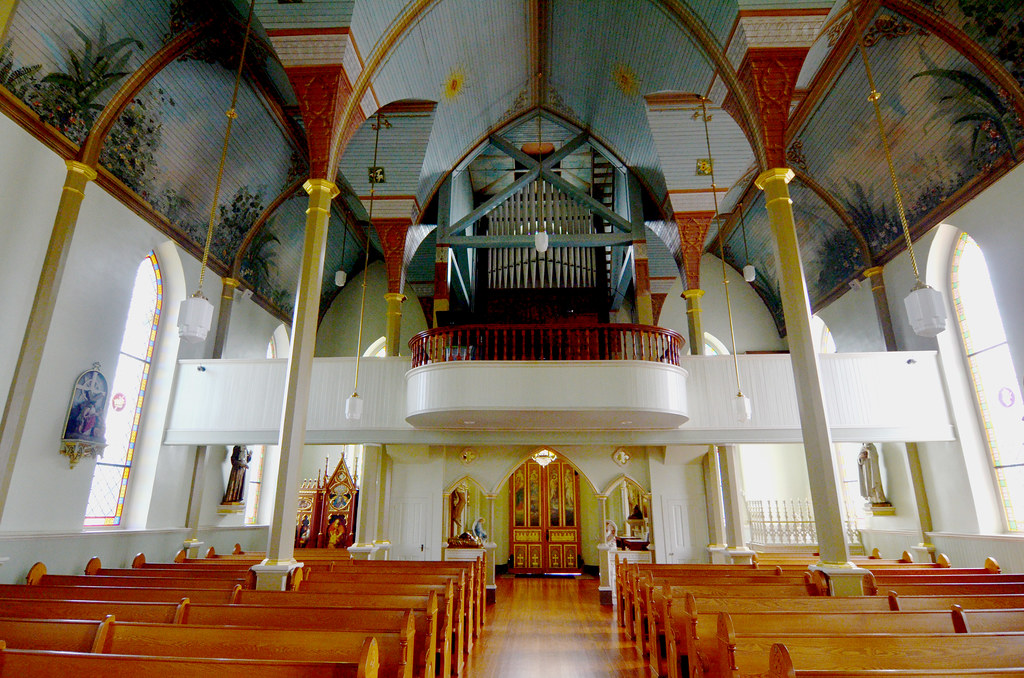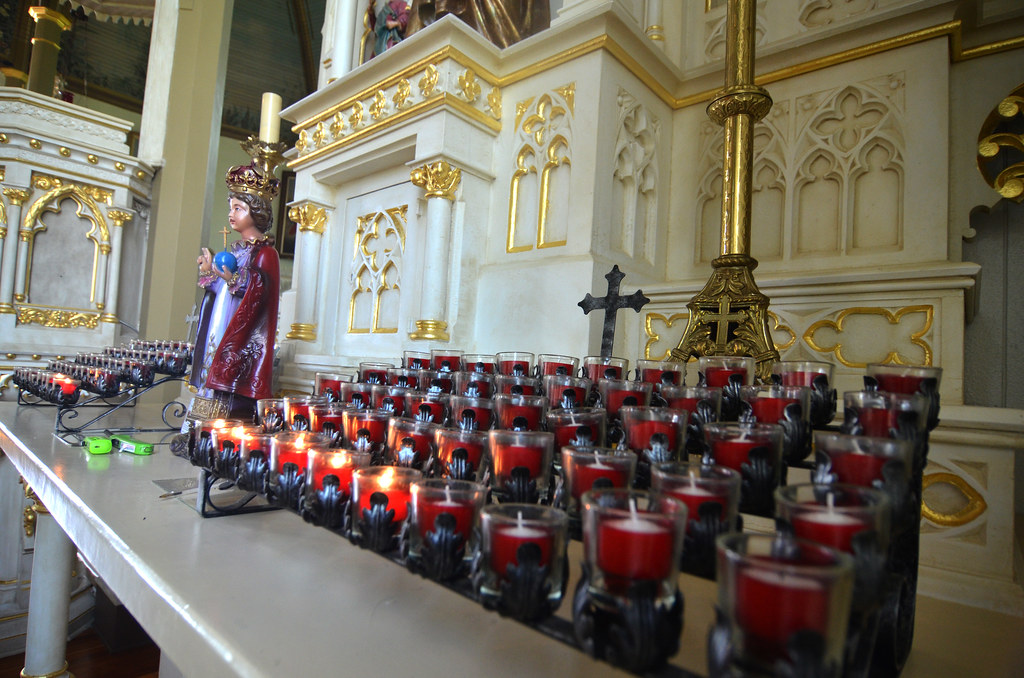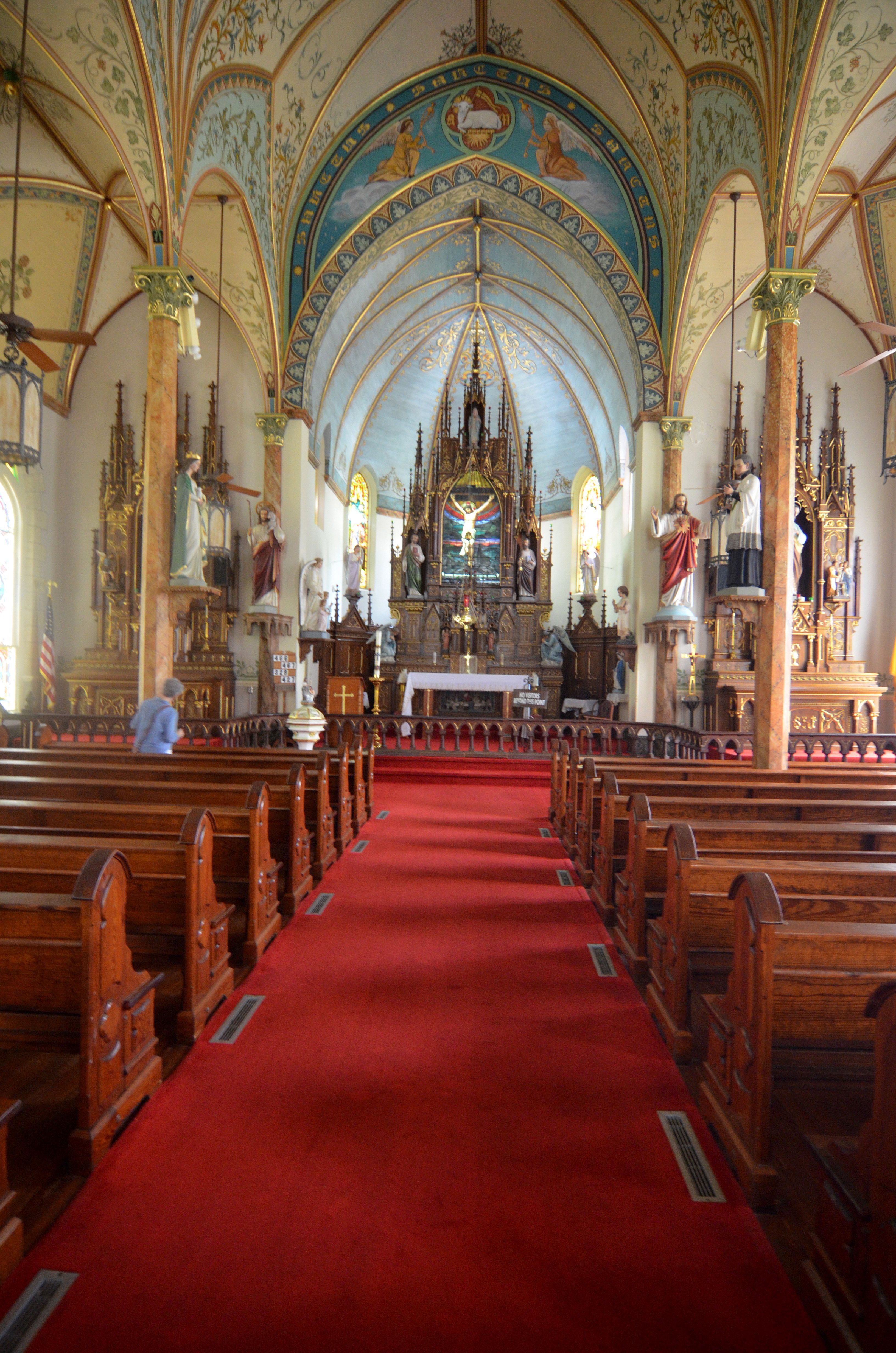
Within a ten-mile radius of I-10 in Central Texas' rolling hill country, one can find a series of churches, open to the public, built by Bavarian and Bohemian immigrants in the style of their homeland. Constructed between 1877 and 1906 during a wave of arrivals from present-day Germany and Czech Republic, the church exteriors bear hallmarks of the small-town chapels of all denominations that dot the Texas countryside.
It is once inside that they depart from the quaint protestant austerity common in the region; white-washed bargeboard gives way to bombastic pastels, imitation gold leafing, immense stained glass windows, and, famously, the hand-painted flights of design that adorn the vaulted ceilings of the sanctuaries.
Though only miles apart on a nexus of farm-to-market roads, each church is imbued with its own distinct character, running the gamut from ornate solemnity to joyous whimsey. In each, period craftsmanship and design flourishes build upon one another to establish an intimate portrait of the group of men and women that worshipped there, far from home but close in tradition to the European churches of their youth. Indeed the churches and the towns in which they are a part remain places out of time, somehow untouched by the homogenous sprawl of the surrounding interstate corridors.
Texas Historical Foundation was fortunate to explore these beautiful historic structures to create this photo essay. A route charted by Texas history writer and hill country native Judy Davis can be found at the foot of the post for those who wish to tour the churches.
St. John the Baptist Catholic Church, Ammansville
St. Cyril and Methodius Church, Dubina
Nativity of Mary, Blessed Virgin Church, High Hill
St. Mary's Catholic Church, Praha
Take the Tour
Click here to take the tour yourself using this scenic route, complete with histories of the towns and churches and links to further reading. To see the full photo series, visit the Texas Historical Foundation on Flickr.

